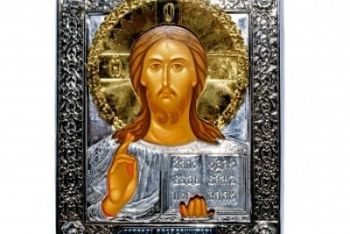
Today’s first reading is pretty much “Beware the antichrist.” The Gospel selection is more-or-less “Hi, I’m John the Baptist.” And the Responsorial Psalm is about “the saving power of God.” What’s the connection?
Having read and reflected on these readings a number of times, one line jumped out at me. It’s an accusatory question from the “priests and Levites” to John the Baptist: “What do you have to say for yourself?” This sentence follows the first half of their question — “Who are you, so we can give an answer to those who sent us?” — but I feel it stands alone: What do you have to say for yourself?
In other words, just what, exactly, are you doing here? Or, perhaps more correctly, what would you say you’re doing if someone asked?
John gives completely true testimony about who he is, what he’s doing, and what role he’s playing in God’s plan. He’s obviously thought it out, and he’s not afraid to respond — truthfully and fully — when asked.
This honesty stands in contrast to the reading from the First Letter of John: “Who is the liar? Whoever denies that Jesus is the Christ. Whoever denies the Father and the Son, this is the antichrist.”
That Letter goes on to warn readers to stay true to the teachings of Christ. We are to acknowledge what we’ve learned about who God is, and how the Son and the Father have worked to deliver the promise of eternal life to us.
So, these readings tie together by virtue of “denial.” Denial is a path to the antichrist, and refusing to deny acknowledges our place — John’s and our own — in God’s plan. And the notion of rejecting denial is at the core of the Responsorial Psalm: “All the ends of the earth have seen the saving power of God.” In other words, if all the world has seen the saving power of God, then it falls to each and every one of us to acknowledge or deny what we’ve witnessed.
Denial is a surprisingly widespread concept. We think of it readily when we recall Peter’s threefold denial of Jesus at His arrest and crucifixion. But the number of times where we are called upon to reject that kind of denial is really pretty rare. Like, I’ve never had someone come up to me and say, “Hey! Do you deny Jesus is Lord?”
No, in our modern world, “denial” more often comes about as a two-fold attack, from within and without. From without, there are a thousand forces all attempting to get you to “deny” Jesus, to follow them instead — money, goals, charismatic individuals, ideologic movements. From within, there are countless nagging doubts that would lead us astray. And these nagging doubts have been with us from the beginning: “Does God really know what He’s talking about?” or “I’d rather follow this idea instead of what God said” is exactly the mindset that led to the Fall in the Garden of Eden.
No, such doubts don’t make us the “antichrist.” But those doubts provide fertile ground for exactly what an antichrist would hope to engender: The denial of Christ in thought, word, and/or deed.
With the coming of the new secular calendar year, now’s a good time to take assessment of your own ties to Christ. If a powerful or authoritative nonbeliever were to come up to you and say, “What do you have to say for yourself?” regarding your faith, how would you respond? Is there some enticement that could be dangled before you — power, possessions, security — that would cause you to consider abandoning the teachings of Christ? And if your immediate answer is, “Of course not! I would never abandon Christ!” then try rephrasing the question in your mind to something like, “How much money would it take you to skip Mass for a week, or to give up Communion for a year?” (Reflecting on it in that way, I’m ashamed to say that I have a price tag in mind for myself; even if I coach it in terms of, “Well, I can just go to Confession,” that’s not how that Sacrament is supposed to work.)
Thinking of ourselves as followers of Christ is easy; it’s where these labels meet words and actions that we often find ourselves most tempted by denial. Christ has made the Good News available to the whole world; though all the ends of the earth have seen the saving power of God, there are still those forces that would seek to profit from our doubt. What about you? What do you have to say for yourself?
